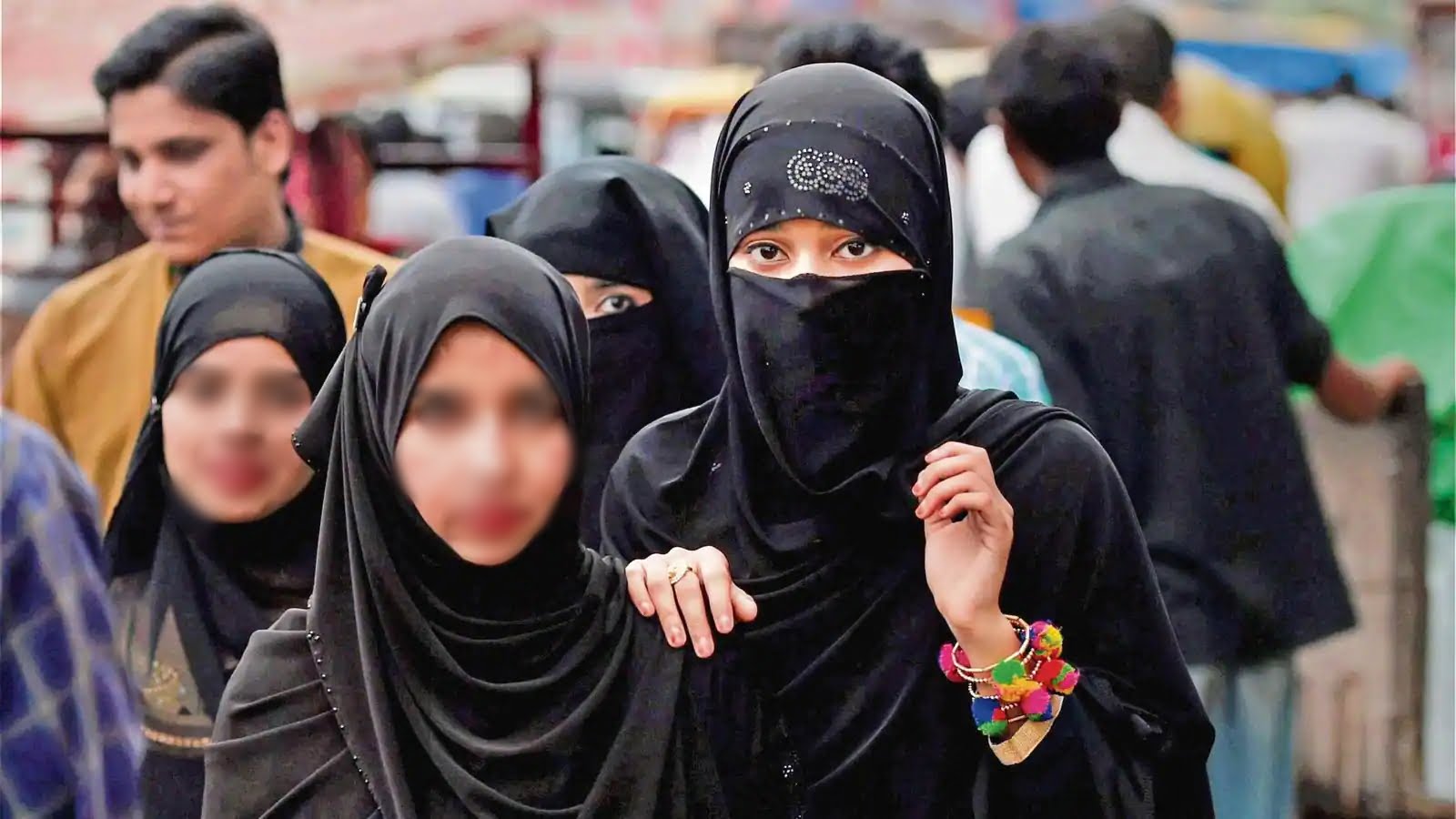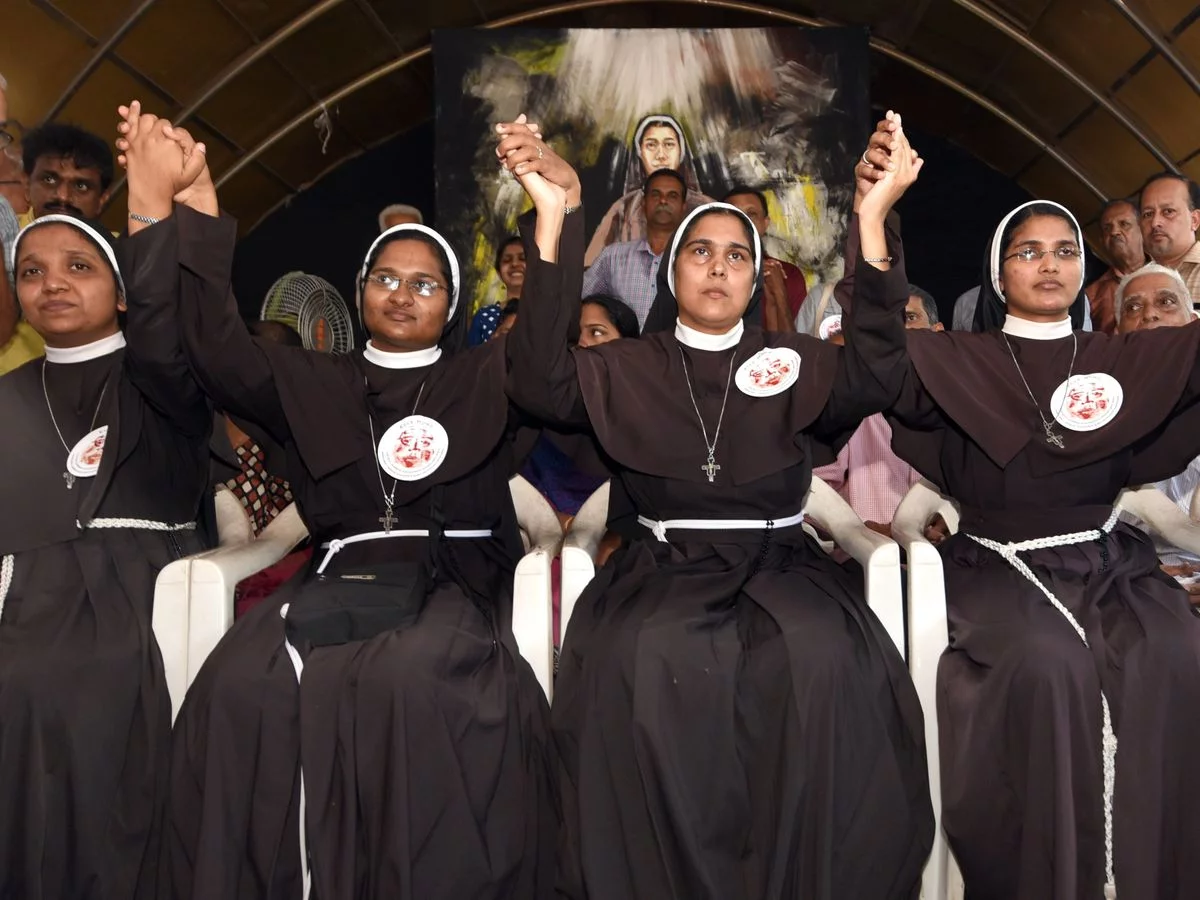The Ministry of Minority Affairs declared August 1 as Muslim Women’s Rights Day to commemorate the 2019 passing of the infamous Triple Talaq Bill, officially known as the Muslim Women Act (Protection of Rights on Marriage). The significance of associating this particular Act with the empowerment of Muslim women is not lost on anyone, certainly not the ruling party. This has led to the reignition of the discourse around the appropriation of women’s rights to serve a political agenda.
Several Muslim women and men came together to condemn the decision and called it “cynical optics”.
That the eradication of Triple Talaq by the BJP government doesn’t promise any solace to the women distressed due to patriarchy that oppresses them across religious, social, economic, and cultural boundaries can be discerned with sufficient certainty through a mere observation of the status of Muslim women, and women in general, under the current administration. The rate of crime against women – crimes per 100,000 female population – is up from 41.7 in 2012 to 55.2 in 2016. There is a drop in sex ratio at birth in 17 out of 21 states.
That the eradication of Triple Talaq by the BJP government doesn’t promise any solace to the women distressed due to patriarchy that oppresses them across religious, social, economic, and cultural boundaries can be discerned with sufficient certainty through a mere observation of the status of Muslim women, and women in general, under the current administration.
Also read: Gendered Islamophobia: A Question Of Dehumanisation Of Muslim Women
BJP’s prince Yogi Adityanath, who has frequently come under heat for his rather distasteful insights on issues of socio-economic nature, wrote an article claiming that women are incapable of functioning independently without the protection of men. Independent women, he advised, are the agents of chaos and cause destruction and thus should be avoided or tamed. Another BJP politician, Vikram Singh Saini, remarked after the revocation of Article 370 in Kashmir that “Modiji has fulfilled our dream. The whole country is happy. I called a hakimji, asking for help to get land in J&K. All eager ‘karyakartas’ can now go to the state and marry ‘gori’ women there. We have no problem with it.”
In another instance, BJP MLA Guna Pannalal Shakya stated that crimes against women are rising because women engage in romantic relationships with men.
While these can be and have been dismissed as personal opinions of these politicians, the BJP’s policies since 2014 don’t portray a better picture. Far from any visions of liberation, these policies, as they concern gender justice, have been rather patronising and consumed with self interest, best exemplified by the Triple Talaq debacle.
Triple talaq is the practise of instant dissolution of a marriage by a male person by repeating the word ‘Talaq’ (divorce) three times. The practice was criminalised by the parliament in 2018 despite the Supreme Court already having struck it down in 2002 in Shamim Ara vs State of UP case. This criminalises the Muslim husband accused of indulging in the practice, with jail up to three years. Ironically, the wife and children are still left behind.
This fuels a version of Muslim women’s empowerment that monumentally compliments the ruling party’s ideology of vilifying the Muslim other and helps construct a degree of gratification for its voters. In this version, a Muslim women’s oppressors are primarily Muslim men; from the clutches of whom they must be rescued.
This fuels a version of Muslim women’s empowerment that monumentally compliments the ruling party’s ideology of vilifying the Muslim other and helps construct a degree of gratification for its voters. In this version, a Muslim women’s oppressors are primarily Muslim men; from the clutches of whom they must be rescued.
A deeper analysis of Hindutva masculinity would prove that concerns related to emasculation by men of other religious identities contribute significantly in the creation of Muslim men’s villainy. The foremost subjects of these Muslim men are Muslim women. These women exclusively exist as victims of Muslim men, and thus any ideations about their rights and development fails to move beyond it. They can only be empowered through a liberation from Muslim men.
Ghazala Jamil in her book ‘Muslim Women Speak: Of Dreams and Shackles’ articulates this accurately: the problem is that in the public sphere the Indian Muslim women’s voice is merged, dissolved, and thus, lost in the Muslim male voice, while the Muslim male voice is effectively silenced except when it is raised to curtail Muslim women’s rights and freedom.
It is then no surprise that the passing of the ban on Triple Talaq be chosen as the day to celebrate Muslim Women’s Rights. It accurately signifies the ruling party’s view that Muslim women’s right only exist in relationship to and liberation from their male counterparts. Rights, policies and development in the social and economic realms unfortunately do not make it on their list of concerns.
Apart from the communal themes of the Act, another area of concern becomes abundantly clear when one notices that debates on the issue often revolve around the rights of Muslim men. Muslim women are completely invisibilised in this discourse. While it is accurate to be concerned for Muslim men who are frequent subjects of Hindutva’s atrocities, it is equally imperative to platform the voices of Muslim women. What do Muslim women want? Does their liberation ever move beyond the domestic sphere? What economic resources and policies do Muslim women need? What education policies will advance Muslim women’s literacy rate? These questions hold no relevance to the BJP policymakers.
BJP’s politics with gender is callously calculated and one that ensures that women remain trapped in the domestic sphere. This is further highlighted in an article by The Wire, which inspects the BJP’s imagination of an ideal woman as a wife and domestic caretaker. The 2016 Ujjwala Yojana scheme, for instance, promised free gas connections to women in rural below-poverty-line households. The tag-line of the scheme was “Mahilaon ko mila samman” (Women get their respect).
The promotional images of the scheme showcased teenaged girls and older women huddled around a gas cylinder or a stove. While associating domestic work with women exclusively is a correct assessment of India’s reality, but its promotion by the central government of the world’s largest democracy should be an extremely concerning matter.
56% of the funds from another scheme, “Beti Bachao Beti Padhao”, were spent on advertising. Less than 25 percent of the funds were disbursed to districts and states. During the promotional campaign of this scheme, themes of women being associated with domestic labour were raised yet again with absurd notions such as if you commit female feticide, who will make your rotis?
BJP’s idea of women empowerment is intrinsically linked to associating them with a task that will benefit their male counterparts and thus prove their usefulness to society. Even if this is the approach they have decided to employ in their gender politics, the BJP leaders and policy makers lack any insight or awareness to categorise this usefulness in a meaningful or productive way. To them, women certainly are an indispensable part of society without their child-bearing capacities, or domestic labour.
It is true that Indian Muslim women’s experience in relation to patriarchy is different than non-Muslim women’s. The most significant of this difference, already highlighted above, is the politicisation of their liberation. The agents that apparently perpetuate the patriarchy that impacts Muslim women the most are also conveniently the enemies of the Hindutva state. How then must one learn to view Muslim women’s relationship with patriarchy?
Also read: The Status of India’s Muslim Women Amid State-Directed Violence and COVID-19
The first and perhaps the most important step in this direction is platforming their voices without letting it be subdued by men’s voices– Muslim or otherwise. There is a need to view Muslim women’s predicament in its interaction with Islam, with communalism, with Hindutva, and finally with the overarching patriarchy. There is also a need to reject any false narrations of pre-existing empowerment of Muslim women that emerge as a reaction to the aggressive politics of the BJP. Scarcely based on any truth or research, these claims only withhold and delay any meaningful action that can be taken to advance women’s rights.
A paper by Ramphul Ohlan titled Muslim Women in India: Status of Demographic, Socioeconomic and Health Inequalities undertakes an examination of demographic, socioeconomic and health inequalities faced by Muslim women in India and concludes that: a) the proportion of Muslim women workforce in India’s total women workforce is less than their share in the country’s total women population; b) Muslim women are poorer than other minority communities; and c) Muslim women do not have access to money and microcredit and have negligible involvement in household economics. The paper recommends that there is an urgent need to establish educational institutes aimed at Muslim women, improve access to health services, and provide support in professional skill development.
Muslim women need government policies that aid their empowerment, their participation in the Indian workforce, their health, their living standard, their literacy, and their financial stability.
That is an Indian Muslim woman’s right.
Featured image source: LiveMint
About the author(s)
Halima is a History graduate from Lady Shri Ram College for Women. She has worked with grassroots political parties as well as international organisations. Her research interests are feminist theory, foreign policy, and area studies. She is currently doing a Master's in International Relations. In her free time, she passionately advocates for Phineas and Ferb songs for Grammy's.




